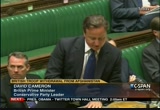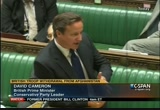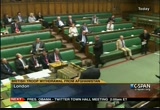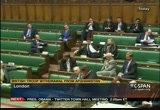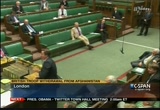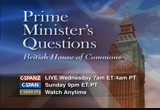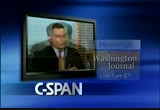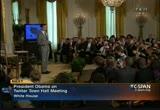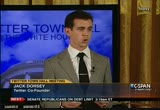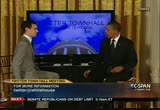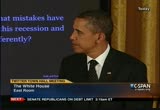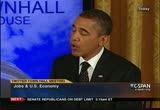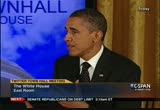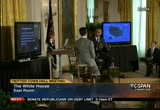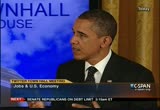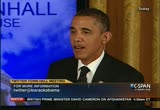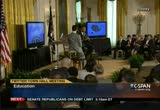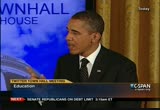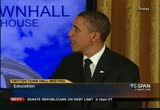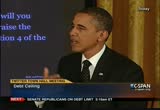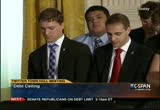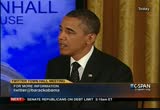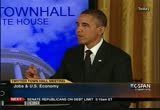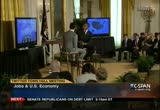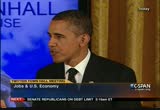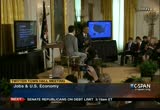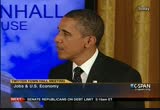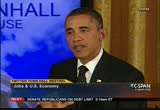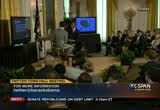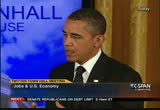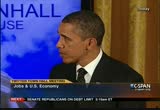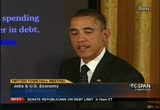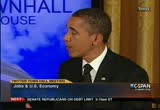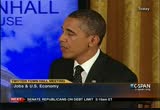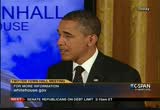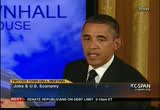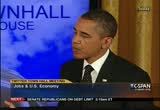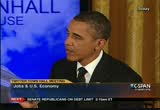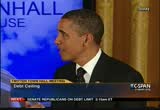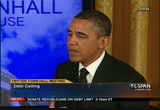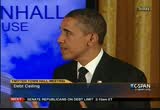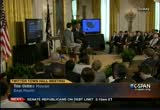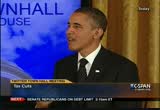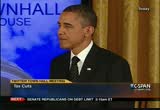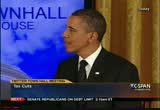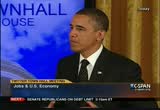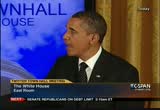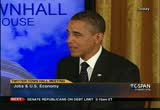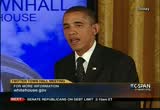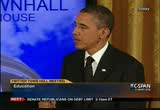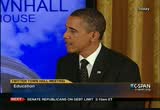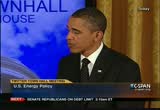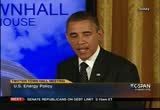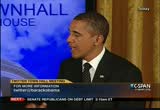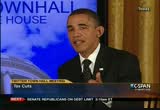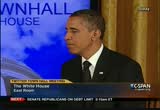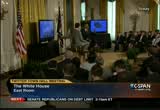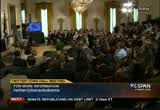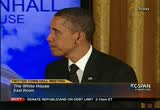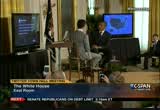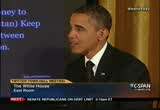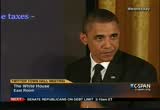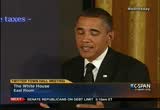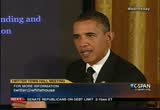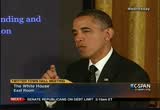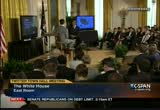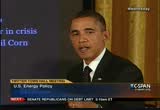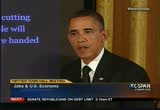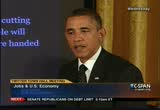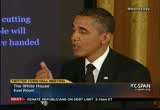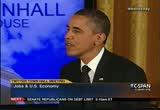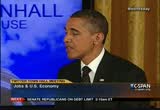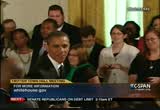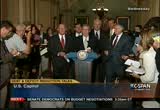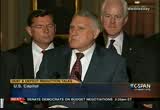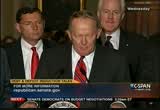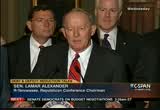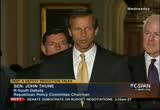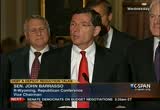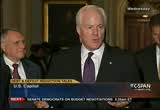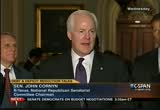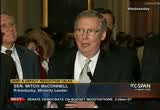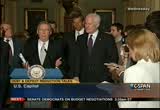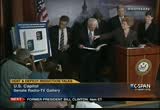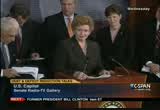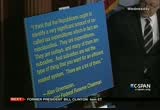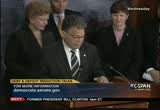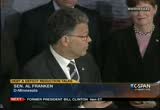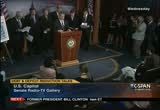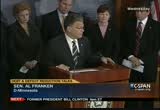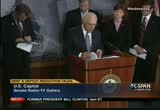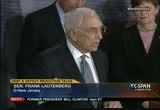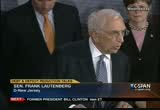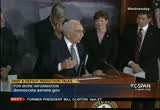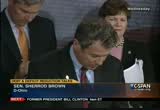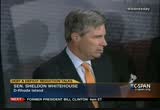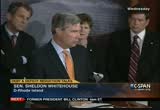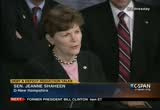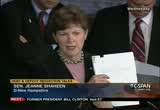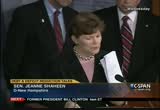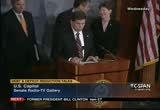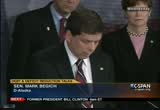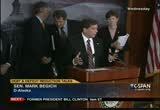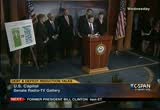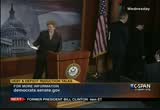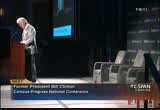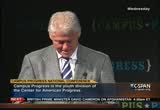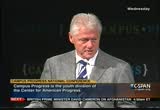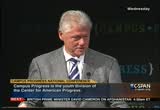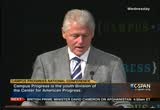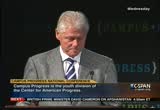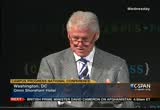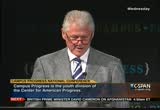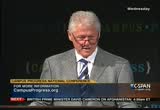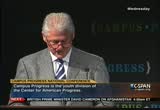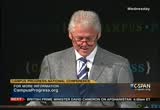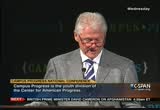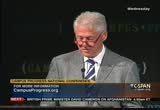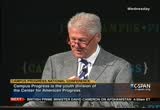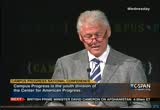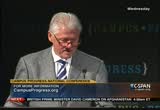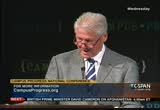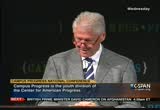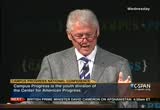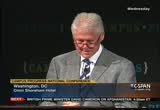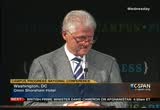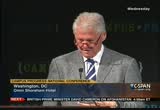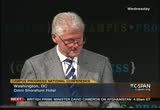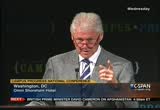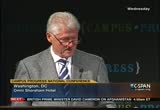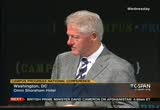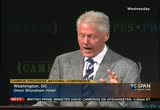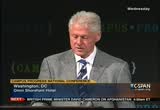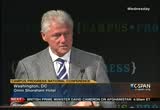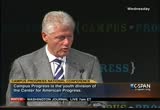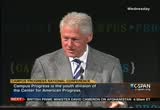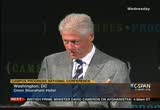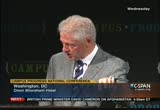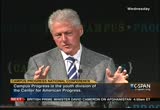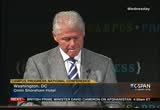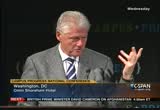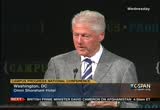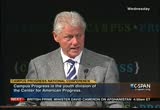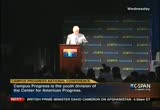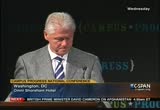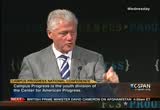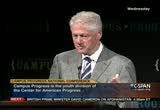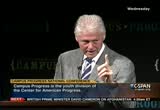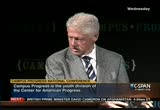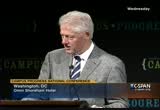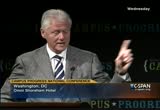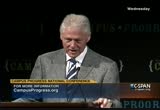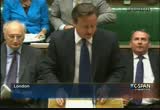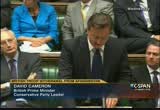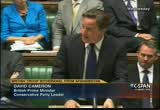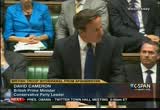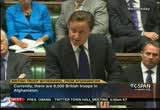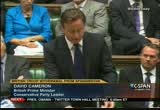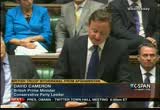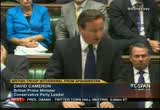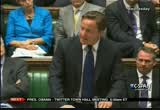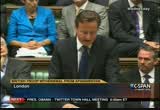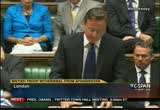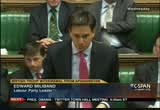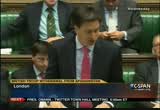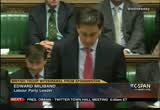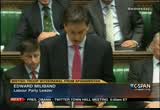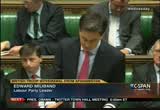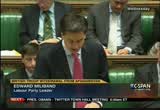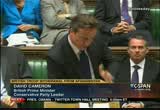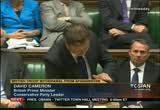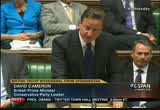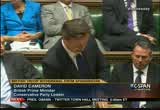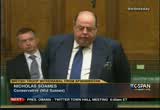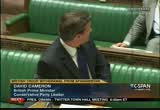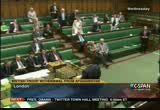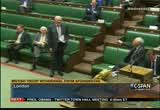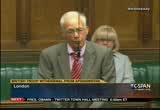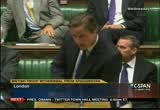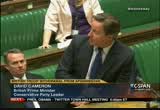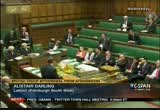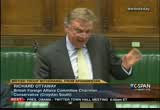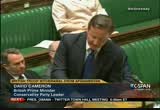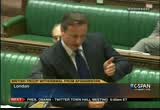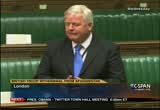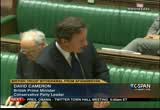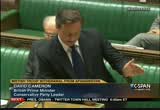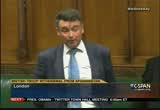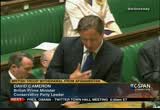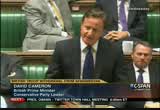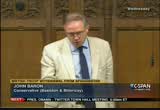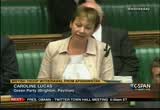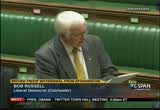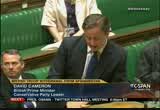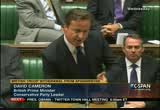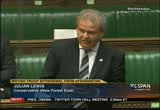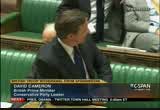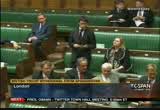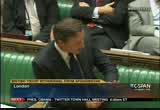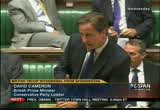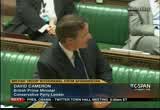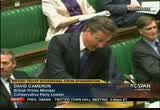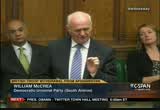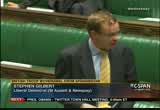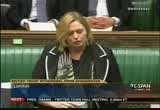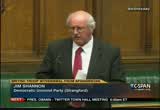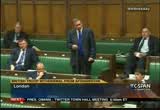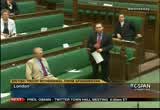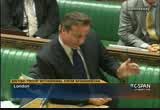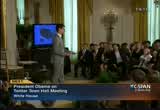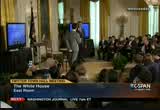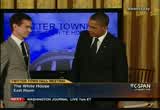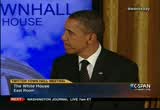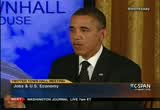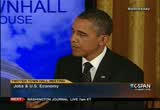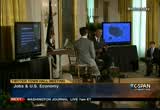tv Today in Washington CSPAN July 7, 2011 2:00am-6:00am EDT
2:00 am
knowing president hamid karzai and i do i know he wouldn't agree to an afghanistan that was miles away from the sort of human rights development he wants to see progress but we have to have a hierarchy and the hierarchy of needs from the u.k.'s point of view is to focus on security and the capacity the afghan government has to secure its own country. other things have to take place behind them. >> mr. john woodcock? >> guaranteeing that this will be ordered, is that right? >> we haveade announcements about chinooks being ordered and we will stick to those announcements. >> mary mccloud. >> peace and stability in afghanistan helped by leaving an entire lting legacy and i welcome the officer -- in school. also agree with me that it is important for education for all especially young girls. >> i do agree.
2:01 am
if you want to see a long-term stable afghanistan that canno be possible by excluding half of the population from being educated. if you look right across north africa and the middle east, permanent education of women is not just important for human-rights but also economic development and peace and progress as well. >> i welcome the prime minister's statements. back in march of this year, honorable members -- the opportunity to preserve afghanistan to our province. and some of the people from -- oppressed by their energy and commitment. what they did need was a $6 million -- and could the prime minister give us an indication that there's going to be a transition of power or security? there needs to be training of police and the start of that in
2:02 am
the province. >> i make two points. the police training colleges up and running and working. i visited it myself and it is taking huge steps forward. one of the tragedies of this is police training was the responsibility of other countries and britain had to take on some of that and do it directly and do it very well. the town itself is going to be one of the first places in afghanistan to transition. is imminent already today that security is provided by afghans for afghans. having been there many times, i find that fact pretty staggering and encouraging and you should too. >> given that the raw material, high proportion of illegal drugs on britain streets starts in afghanistan at progress is being made in getting farmers to grow other things other than poppy and is the prime minister
2:03 am
confident the afghan government will continue this work once we left? >> we are seeing progress on this. britain is invested in the wheat seed distribution project. one of the lessons of going to e country repeatedly in the last five years is if you want to doomething about poppy cultivation you can talk all you like about destroying crops. the real key is building roads because you have got to enable the afghans to get their produce toarket. if they don't have legitimate produce to get to legitimate market the drug dealers will prey on them and give them their poppyseed at the end of harvest and the job is done. it is about roads and government capacity as much as the criminal justice system. >> given the prime minister's remarks about the need to build the afghan school structuree will have seen some media reports today. i wonder if he would confirm whether the u.k. is considering sending senior civil servants or
2:04 am
officers to kabul on a permanent basis? >> i had the honor of meeting with the speaker of the afghan parliament. as i understand ther are going to be good and strong relations between this parliament and the afghan parliament which is beginning to establish itself. i leave decisions for the mr. speaker wants to do to mr. speaker. >> i welcome the prime minister's comments about afghanistan but i wonder if he could update the house on what progress is made in schooling and how far we progressed in education and where that leads us now. >> the hon. gentleman asks a good question. i will write to him >> while the british house of commons is incense and we bring to the prime minister's questions wednesday at 7:00 a.m. eastern and sunday at 9:00 p.m.
2:05 am
eastern and pacific on c-span. you can also view our coverage any time by visiting c-span.org. >> coming up next, president obama holds a twitter town hall meeting. senate republicans democrats discussed negotiations over the budget. >> mission control, a houston. >> roger, discovery. >> nasa is on schedule for the final launch of atlantis. look back of the shuttle program starting with the launch of columbia 30 years ago and explore what is ahead for nasa. online at the c-span and video library. >> you are watching c-span, bringing you politics and public
2:06 am
affairs. the connects you with the policy makers and journalists. watch a live coverage of the u.s. house and congressional hearings. also supreme court oral arguments. on saturdays, the communicators and sundays, newsmakers, q&a, and prime minister's questions. you can also watch our programming any time at c- span.org. washington, your way. a public service by the cable companies. >> today, president obama held his town hall meeting where he answered questions submitted by the internet service twitter. he began by sending his first live tweet. he answered questions for just over an hour.
2:07 am
the white house. i am jack dorsey, from twitter. through more than 200 million tweets per day, people around the world use twitter to instantly connect to what's most meaningful to them. in every country -- egypt and japan, the uk and the united states -- much of this conversation is made up of everyday people engaging in spirited debate about the future of their countries. our partners at salesforce radian6 studied more than a million tweets, discussing our nation's politics over the recent weeks, and they found that america's financial security to be one of the most actively talked about topics on twitter. they further found that president obama's name comes up in more than half of these conversations. and so today this vibrant discussion comes here to the white house and you get to ask the questions. to participate, just open your web browser and go to
2:08 am
askobama.twitter.com. neither the president or i know the questions that will be asked today. that decision is driven entirely by the twitter users. and so let's get the conversation started. ladies and gentlemen, the president of the united states. [applause] >> hello, everybody! [applause] first of all, everybody can sit down. [laughter] it's much easier to tweet from a seated position. [laughter] >> and i understand you want to start the conversation off with a tweeter yourself. >> i'm going to make history here as the first president to
2:09 am
2:10 am
>> so what was your question? here it is. >> here's the question, "in order to reduce the deficit, what costs would you cut and what investments would you keep?" and the reason i thought this was an important question is, as all of you know, we are going through a spirited debate here in washington, but it's important to get the whole country involved, in making a determination about what are the programs that can help us grow, can create jobs, improve our education system, maintain our clean air and clean water, and what are those things that are a waste that we shouldn't be investing in because they're not helping us grow or create jobs or creating new businesses. and that debate is going to be heating up over the next couple of weeks, so i'd love to hear from the american people, see what thoughts they have. >> excellent. well, first question comes from a curator in new hampshire. and we have eight curators around the country helping us
2:11 am
pick tweets from the crowd so that we can read them to the president. and this one comes from william smith, "what mistakes have you made in handling this recession and what would you do differently?" >> that's a terrific question. when i first came into office we were facing the worst recession since the great depression. so, looking around this room, it's a pretty young room -- it's certainly the worst recession that we've faced in our lifetimes. and we had to act quickly and make some bold and sometimes difficult decisions. it was absolutely the right thing to do to put forward a recovery act that cut taxes for middle-class folks so they had more money in their pocket to get through the recession. it was the right thing to do to provide assistance to states to make sure that they didn't have to lay off teachers and cops and firefighters as quickly as they needed to. and it was the right thing to do to try to rebuild our infrastructure and put people back to work building roads and bridges and so forth.
2:12 am
it also was the right thing to do, although a tough decision, to save the auto industry, which is now profitable and gaining market share -- the u.s. auto industry -- for the first time in a very long time. i think that -- probably two things that i would do differently. one would have been to explain to the american people that it was going to take a while for us to get out of this. i think even i did not realize the magnitude, because most economists didn't realize the magnitude, of the recession until fairly far into it, maybe two or three months into my presidency where we started realizing that we had lost 4 million jobs before i was even sworn in. and so i think people may not have been prepared for how long this was going to take and why we were going to have to make some very difficult decisions and choices. and i take responsibility for that, because setting people's expectations is part of how you
2:13 am
end up being able to respond well. the other area is in the area of housing. i think that the continuing decline in the housing market is something that hasn't bottomed out as quickly as we expected. and so that's continued to be a big drag on the economy. we've had to revamp our housing program several times to try to help people stay in their homes and try to start lifting home values up. but of all the things we've done, that's probably been the area that's been most stubborn to us trying to solve the problem. >> mr. president, 27% of our questions are in the jobs category, as you can see from the screen over here. our next question has to do about jobs and technology. it comes from david, "tech and knowledge industries are thriving, yet jobs discussion always centers on manufacturing. why not be realistic about jobs?" >> well, it's not an either/or question -- it's a both/and question. we have to be successful at the cutting-edge industries of the future like twitter.
2:14 am
but we also have always been a country that makes stuff. and manufacturing jobs end up having both higher wages typically, and they also have bigger multiplier effects. so one manufacturing job can support a range of other jobs -- suppliers and the restaurant near the plant and so forth. so they end up having a substantial impact on the overall economy. what we want to focus on is advanced manufacturing that combines new technology, so research and development to figure out how are we going to create the next twitter, how are we going to create the next google, how are we going to create the next big thing -- but make sure that production is here. so it's great that we have an apple that's creating ipods, ipads and designing them and creating the software, but it
2:15 am
would be nice if we're also making the ipads and the ipods here in the united states, because that's some more jobs that people can work at. and there are going to be a series of decisions that we've got to make. number one, are we investing in research and development in order to emphasize technology? and a lot of that has to come from government. that's how the internet got formed. that's how gps got formed. companies on their own can't always finance the basic research because they can't be assured that they're going to get a return on it. number two, we've got to drastically improve how we train our workforce and our kids around math and science and technology. number three, we've got to have a top-notch infrastructure to support advanced manufacturing, and we've got to look at sectors where we know this is going to be the future. something like clean energy, for example. for us not to be the leaders in investing in clean energy manufacturing so that wind turbines and solar panels are not only designed here in the
2:16 am
united states but made here in the united states makes absolutely no sense. we've got to invest in those areas for us to be successful. so you can combine high-tech with manufacturing, and then you get the best of all worlds. >> you mentioned education. there's a lot of questions coming about education and its impact on the economy. this one in particular is from a curator who is pulling from a student in ohio, named dustin, "higher ed is necessary for a stronger economy, but for some middle-class americans it's becoming too expensive. what can be done?" >> well, here is some good news. we've already done something that is very significant, and people may not know. as part of a higher education package that we passed last year, what we were able to do was to take away subsidies that were going to banks for serving as middlemen in the student loan program and funnel that to help young people, through pell grants and lower rates on student loans.
2:17 am
and so there are millions of students who are getting more affordable student loans and grants as a consequence of the steps that we've already taken. this is about tens of billions of dollars' worth of additional federal dollars that were going to banks are now going to students directly. in addition, what we've said is that starting in 2013, young people who are going to college will not have to pay more than 10% of their income in repayment. and that obviously helps to relieve the burden on a lot students -- because, look, i'm a guy who had about $60,000 worth of debt when i graduated from law school, and michelle had $60,000. and so we were paying a bigger amount every month than our mortgage. and we did that for eight, 10 years. so i know how burdensome this can be. i do think that the universities still have a role in trying to keep their costs
2:18 am
down. and i think that it's important -- even if we've got better student loan programs, more grants, if the costs keep on going up then we'll never have enough money, you'll never get enough help to avoid taking on these huge debts. and so working with university presidents to try to figure out, where can you cut costs -- of course, it may mean that the food in the cafeteria is a little worse and the gym is not as fancy. but i think all of us have to figure out a way to make sure that higher education is accessible for everybody. one last point -- i know, twitter, i'm supposed to be short. [laughter] but city -- community colleges is a huge, under-utilized resource, where what we want to do is set up a lifelong learning system where you may have gotten your four-year degree, but five years out you decide you want to go into another field or you want to brush up on new technologies that are going to help you advance.
2:19 am
we need to create a system where you can conveniently access community colleges that are working with businesses to train for the jobs that actually exist. that's a huge area where i think we can make a lot of progress. >> you mention debt a lot. that's come up in conversation a lot recently, especially in some of our recent questions, specifically the debt ceiling. and this is formulated in our next question from renegadenerd out of atlanta, "mr. president, will you issue an executive order to raise the debt ceiling pursuant to section 4 of the 14th amendment?" >> can i just say, renegadenerd, that picture is -- captures it all there. [laughter] he's got his hand over there, he's looking kind of confused. [laughter] let me, as quickly as i can, describe what's at stake with respect to the debt ceiling. historically, the united states, whenever it has a
2:20 am
deficit, it finances that deficit through the sale of treasuries. and this is a very common practice. over our lifetimes, typically the government is always running a modest deficit. and congress is supposed to vote on the amount of debt that treasury can essentially issue. it's a pretty esoteric piece of business; typically has not been something that created a lot of controversy. what's happening now is, is that congress is suggesting we may not vote to raise the debt ceiling. if we do not, then the treasury will run out of money. it will not be able to pay the bills that are owing, and potentially the entire world capital markets could decide,
2:21 am
you know what, the full faith and credit of the united states doesn't mean anything. and so our credit could be downgraded, interest rates could go drastically up, and it could cause a whole new spiral into a second recession, or worse. so this is something that we shouldn't be toying with. what dexter's question referred to was there are some people who say that under the constitution, it's unconstitutional for congress not to allow treasury to pay its bills and are suggesting that this should be challenged under the constitution. i don't think we should even get to the constitutional issue. congress has a responsibility to make sure we pay our bills. we've always paid them in the past. the notion that the u.s. is going to default on its debt is just irresponsible. and my expectation is, is that over the next week to two weeks, that congress, working
2:22 am
with the white house, comes up with a deal that solves our deficit, solves our debt problems, and makes sure that our full faith and credit is protected. >> so back to jobs. we have a question from new york city about immigrant entrepreneurs, "immigrant entrepreneurs can build companies and create jobs for u.s. workers. will you support a startup visa program?" >> what i want to do is make sure that talented people who come to this country to study, to get degrees, and are willing and interested in starting up businesses can do so, as opposed to going back home and starting those businesses over there to compete against the united states and take away u.s. jobs. so we're working with the business community as well as the entrepreneurial community to figure out are there ways that we can streamline the visa
2:23 am
system so if you are studying here, you've got a phd in computer science or you've got a phd in engineering, and you say i'm ready to invest in the united states, create jobs in the united states, then we are able to say to you, we want you to stay here. and i think that it is possible for us to deal with this problem. but it's important for us to look at it more broadly. we've got an immigration system that's broken right now, where too many folks are breaking the law but also our laws make it too hard for talented people to contribute and be part of our society. and we've always been a nation of laws and a nation of immigrants. and so we need comprehensive immigration reform, part of which would allow entrepreneurs and high-skilled individuals to stay here -- because we want to be attracting that talent here. we don't want that -- we don't want to pay for training them here and then having them benefit other countries. >> our next question was just -- was sent just an hour ago
2:24 am
and touches on alternative energy and job creation, "will you focus on promoting alternative energy industries in oil states like louisiana and texas?" >> i want to promote alternative energy everywhere, including oil states like louisiana and texas. this is something that i'm very proud of and doesn't get a lot of attention. we made the largest investment in clean energy in our history through the recovery act. and so we put forward a range of programs that provided credits and grants to startup companies in areas like creating wind turbines, solar panels. a great example is advanced battery manufacturing. when i came into office, advanced batteries, which are used, for example, in electric cars, we only accounted for 2 percent of the world market in advanced batteries. and we have quintupled our market share, or even gone further, just over the last two
2:25 am
years. and we're projecting that we can get to 30 to 40 percent of that market. that's creating jobs all across the midwest, all across america. and whoever wins this race on advanced battery manufacturing is probably going to win the race to produce the cars of the 21st century. china is investing in it. germany is investing in it. we need to be investing in it as well. >> i wanted to take a moment and point out the map just behind you. these are tweets coming in, in real time, and these are questions being asked right now. and it flips between the various categories that we've determined and also just general askobama questions. so our next question is coming up on the screen now, from patrick, "mr. president, in several states we have seen people lose their collective bargaining rights. do you have a plan to rectify this?" >> the first thing i want to emphasize is that collective bargaining is the reason why the vast majority of americans
2:26 am
enjoy a minimum wage, enjoy weekends, enjoy overtime. so many things that we take for granted are because workers came together to bargain with their employers. now, we live in a very competitive society in the 21st century. and that means in the private sector, labor has to take management into account. if labor is making demands that make management broke and they can't compete, then that doesn't do anybody any good. in the public sector, what is true is that some of the pension plans that have been in place and the health benefits that are in place are so out of proportion with what's happening in the private sector that a lot of taxpayers start feeling resentful. they say, well, if i don't have health care where i only have to pay $1 for prescription
2:27 am
drugs, why is it that the person whose salary i'm paying has a better deal? what this means is, is that all of us are going to have to make some adjustments. but the principle of collective bargaining, making sure that people can exercise their rights to be able to join together with other workers and to negotiate and kind of even the bargaining power on either side, that's something that has to be protected. and we can make these adjustments in a way that are equitable but preserve people's collective bargaining rights. so, typically, the challenges against bargaining rights have been taking place at the state level. i don't have direct control over that. but what i can do is to speak out forcefully for the principle that we can make these adjustments that are necessary during these difficult fiscal times, but do it in a way that preserves collective
2:28 am
bargaining rights. and certainly at the federal level where i do have influence, i can make sure that we make these adjustments without affecting people's collective bargaining rights. i will give you an example. we froze federal pay for two years. that was not a popular among federal workers. on the other hand, we were able to do that because we want to prevent layoffs and we wanted to make sure we send a signal that everybody is going to have to make some sacrifices. people in the work -- white house have had a pay freeze since i came in. that is appropriate. a lot of ordinary folks have not either. they have seen their pay cut in some cases. >> 6% of our questions are about housing. this one has to do with personal
2:29 am
debt. how will work to help homeowners who are not behind in payments but are trapped in homes they cannot sell? >> it is a great question. one of our biggest challenges during the course of the last years has been dealing with a huge burst of the housing bubble. a lot of folks are under water. their home values went down so steeply and so rapidly that now their mortgage is a lot more than the assessed worth of their home. that burden is a lot of folks. they have to sell at a massive loss they cannot afford. the means they do not feel they do not have any assets because the biggest asset is usually the home. we have been trying to work with the issuers of the
2:30 am
mortgages, the banks or service companies, to convince them to work with homeowners who are paying, trying to do the right thing, to see if they can modify the loan so that the payments are lower. in some cases maybe modify the principal so they don't feel burdened by these debts and tempt them to walk away from their homes. we made some progress. we have -- through the programs that we set up here, have probably seen several million home modifications, either directly because we -- we had control of the loan process or because the private sector followed suit, but it's not enough. and so we're going back to the drawing board. talking to banks.
2:31 am
trying to put some pressure on them to work with people who have mortgages to see if we can make further adjustments to modify loans more quickly and also see if there may be circumstances where reducing principal is appropriate. >> we have someone you may now. speaker boehner. where are the jobs? >> well, first of all, john needs to work on his typing skills. [laughter] obviously, john is the speaker of the house, a republican, and so -- this is slightly a skewed question. but what he is right about is
2:32 am
that we have not seen a fast enough job growth relative to the means. we have lost 4 million jobs before i took office. before i was sworn in. about 4 million jobs were lost in the few months right after i took office before our economic policies had a chance to take any effect. and over the last 15 months, we have actually seen 2 million jobs created in the private sector and so we're -- each month seeing growth in jobs. but when you have an an eight million job hole and you're only filling in 100,000-200,000 jobs at a time each month, obviously that is way too long for a lot of folks who are still out of work.
2:33 am
there are a coum things that we can continue to do. i have worked with speaker boehner on a payroll tax cut in december that put an extra thousand dollars in the pockets of almost every single american. that means they are spending money and means that businesses will have more customers and that has helped overall improved growth. we have provided at least 16 tax cuts to small businesses. who have needed a lot of help and have been struggling including, for example, saying zero capital gains taxes because our attitude is we want to encourage new companies, young entrepreneurs to get out there, start their business without feeling like if they are successful in the first couple of years, that somehow they have to pay taxes opposed to putting that money back into their business. so we have been able to cooperate with republicans on a range of these issues.
2:34 am
there are some areas where the republicans have been more resistant in cooperating even though i think most objective observers think it is the right thing to do. i'll give you a specific example. it is estimated we have about $2 trillion worth of infrastructure that needs to be rebuilt. roads, brings, sewer lines, water mains, our air traffic control system doesn't make sense. we don't have the kind of electric grid that is smart, meaning it doesn't waste a lot of energy in transmission. our broadband system is slower than a lot of other countries. to put them to work, rebuilding
2:35 am
america at a time when interest rates are very low, contractors are looking for work. and the snead there. that is something that could make a huge, positive impact on the economy overall. it is an example of making an investment now that ends up having huge payoffs down the road. we haven't gotten the kind of cooperation that i would like to see on some of those ideas and initiatives but i'm just going to keep on trying and eventually i'm sure the speaker will see the light. >> speaking of start-ups, there is a ton of questions about small businesses and how they affect job creation. this one comes from neil. what incentive rust willing to pass to improve small business growth? >> i just mentioned some of the tax breaks we provided. if they are making investments
2:36 am
in plants and equipment this year, they can fully write down those costs, take essentially, depreciate all of those costs this year. and that safes them a pretty big -- saves them a pretty big tax bill. we're already initiating a bunch of steps. the biggest challenge i hear from small businesses now has to do with financing because a lot of small businesses got their financing from community banks. typically they are not getting them from the big wall street banks but they are getting them from the various region a.m. banks in their communities. a lot of those banks >> pretty overextended in the commercial real estate market which has been hammered. a lot of them are still digging themselves out of bad loans that they made that were shown to be bad during the recession.
2:37 am
what we tried to do is get the small business administration, the federal agency that helps small businesses to step in and to provide more financing. you know, waiving fees, seeing if we can lower interest rates in some cases, making sure that the threshold for companies that qualify for loans are more generous and that has helped a lot of small businesses all across the country and this is another example of where working with congress, my hope is that we can continue to provide these tax incentives and maybe do even a little bit more. >> my next question was tweeted less than five minutes ago and comes to us from craig. my question is can you give companies a tax break if they hire an honorable discharged veteran? >> this is something i've been talking a lot about internally. we've got all of these young people coming back from iraq and afghanistan.
2:38 am
they have made incredible sacrifices. have taken on incredible responsibilities. you know, you see some 23-year-old who is leading a platoon in hugely dangerous circumstances, making decisions, operating complex technologies. these are folks who can perform but unfortunately, what we're seing is that a lot of these young veterans have a higher unemployment rate than people who didn't serve and that makes no sense. so what we would like to do is potentially combine a tax credit for a company that hires veterans with a campaign to have private companies step up and do the right thing and hire more veterans. one of the things that we have zone internally in the federal government, we have made a huge emphasis onramping up outreach
2:39 am
to veterans and hiring of veterans and this has been a top priority of mine, the notion that these folks were sacrificing for our freedom and security end up coming home and not able to find a job. >> this comes from someone else you my recognize. this comes from nick christophe. was it a mistake to fail at the same time tax cuts were extended? >> nick slass a great columnist but i have to tell you to assumption of the question is that i was going to be able to get them to commit to raising the debt ceiling. in december, we were in what was called the lame duck session. the republicans knew that they were going to be coming in as the majority. we only had a few short weeks to deal with a lot of complicated issues including repeeling don't
2:40 am
ask/don't tell. dealing with a start treaty to reduce nuclear weapons and come to terms with the budget. what we were able to do was negligent a package where we agreed to do something that we didn't like but that the republicans badly wanted, which is to extend the bush tax cuts on the wealthy for another two years. in exchange we were able to get this payroll tax to put $1,000 in the pockets of every american which would help economic growth and jobs. we were also able to get unemployment insurance extended for the millions of americans who are still out of work and whose benefits were about to run out. and that was a much better deal than i think a lot of people expected. it would have been great if we were able to also settle this issue of the debt ceiling at that time. that wasn't the deal that was available.
2:41 am
but here is the more basic point. never in our history has the united states defaulted on its debt. the debt ceiling should not be something that is used as a gun against head of the american people to extract tax breaks for corporate jet owners or oil and gas company s that aremaking billions of dollars because the price of gasoline has gone up so high. i mean, i'm happy to have those debates. i think the american people are on my side on this. what we need to do is have a balanced approach where everything is on the table. we need to reduce corporate loopholes. we need to reduce discretionary spending on programs that are not working. we need to reduce defense spending.
2:42 am
everything that -- we need to look at entitlements. we have to say how do we protect and preserve medicare/social security not only for this generation but future generations and that is going to require some modifications even as we maintain its basic structure. what i'm hoping to see over the next couple of weeks is people put their do mas aside, their sacred towels aside and say here is a sensible approach that reduces our deficit, makes sure the government is spending within its means but also continues to make investment in education and clean energy and basic research that are going to preserve our competitive advantage going forward. >> our next question is coming from alabama from lane. what changes to the tax system do you think are necessary to help solve the deficit problem and for the system to be fair?
2:43 am
>> well, i think that first of all, it is important for people to realize since i've been in office, i cut taxes for middle class families repeatedly. 95% of working families. the payroll tax cut that we passed in december put an extra thousand dollars in the pockets of every family in america. so we actually now have the lowest tax rates since the 1950's. our tax rates are lower now than they were under ronald reagan. they are lower than they were under george bush sr. or jr. they are lower than they were under bill clinton. the question is how do we pay for the things that we don't think are important and how do we make sure that the tax system is equitable? what i have said is that in addition to eliminating a whole
2:44 am
bunch of corporate loopholes that are just not fair, the notion that corporate jets shouldn't get a better deal than commercial jets. that doesn't make sense. but what i've also said is people like me, who have been incredibly fortunate, mainly because a lot of folks bought my book, for me to be able to go back to pay a couple extra percentage points so that i can make sure the seniors still have medicare or kids still have head start. that makes sense to me. and we talked about this before. i'm assuming it makes sense to you given that twitter has done pretty well. for us to say that millionaires
2:45 am
and billionaires can go back to the tax rate that existed when bill clinton was president. that doesn't affect middle class families having a tough time and haven't seen their incomes go up. it does mean that those in the top 1% or 2% who have seen their incomes go up much more quickly than anybody else pay little bit more in order that we can make these basic investments that grow this country, that is not an unreasonable position to take. the vast majority of americans agree with me on that. that doesn't mean that we can just continue spending anything we want. we're still going to have to make some tough decisions about defense spending or even some program that i like but we may not need. but we can't close the deficit and debt just by cutting things like head starts or medicare. that can't be an equitable solution to solving the problem.
2:46 am
millionaires and billionaires, say to them you don't have to do anything. i don't want a $200 tax break if it means some senior is going to have to pay $6,000 more for medicare that they don't have or a bunch of kids are going to be kicked off of head start? and not get the basics they need in order to succeed in our society. i don't think that is good for me or for the country. >> a follow-up question to your answer about homeowners being underwater. this came in 10 minutes ago. is free market an option? obama on homeowners under water have made some progress. >> when schnapps talks about -- market options, keep in mind that most of this is is going to be a function of the markets
2:47 am
slowly improving because people seem to be having conflicts in the economy. the housing market has kind of bottomed out. they start buying -- that looks starts slowly lifting up prices and you get a cycle going on. a lot of this is going to be determined by how well the overall economy does and people feel for confident about jobs or feel more confident that they are going to be able to make their mortgage and given size of the housing martz, no federal program is going to be able to soft the housing problem. -- able to solve the housing problem. the one thing we can do is "making money" sure for homeowners who have been -- is making sure homeowners -- who had some tough luck because they
2:48 am
bought at the top of the market, can afford to continue to pay for that house. can afford their current mortgage but need some relief given the drop in value that we try to match them up with a banker so that each side ends up winning. that the banker says i'm going better off than if this house is forclosed upon and i have to sell it in a fire sale and the mortgage owner is able to stay in their home but still -- and i think that that kind of adjustment and negotiation process is tough. it is difficult partly because a lot of banks these days don't hold mortgages. they were all sold to wall street and were sliced and diced in these complex financial transactions so sorting through who owns what can be very complicated and as you know, some of the banks didn't do a very good job on filing some of
2:49 am
their papers on these foreclosure actions so there has been litigation around that, but the bottom line is we should be able to make some progress on helping some people understanding some folks just bought more home than they could afford. probably they are going to be better off renting. >> 10% of our questions now are about education. this one is from california by marsha. public education here in california is falling apart. not graduating enough skilled workers or private citizens. >> look. when america was making a transition from an agricultural society to an industrial society, we, as a country, made a decision that we were going to have public high schools that would upgrade the skills of young people as they were leaving the farms and start
2:50 am
participating in a more complex industrial economy. when my grandfather's generation came back from world war ii, we made a decision that we were going to have a g.i. bill that would send these young people to college because we figured that would help advance our economy. every time we made a public investment in education, it has paid off many times over. for us now to short education when -- with the laws more complex than ever and it is a knowledge-based society and companies locate based on whether they have got skilled workforces or not that, makes no sense. so we have got to get our priorities straight here. it is important for us to have a healthy business climate, to try to keep taxes low, to make sure
2:51 am
that without spending on things that don't work, it is important that we get a good bang for the buck in education. so my administration has pushed more reform, more vigorously across the country for things like race to the top than most previous administrations have been able to accomplish. so we don't just need more money, we need more reform. but we do have to pay for good teachers. young, talented people are not going to go into teaching if they are getting paid a poverty wage. we do have to make sure the buildings are not crumbling. it is pretty hard for kids to concentrate if there are leaks and it is cold and there are rats running around. that is true in many of the schools in this country. we have to make is that your computers in this computer age are working and that there are
2:52 am
actually internet connections that actually function. i think those state s that aregoing to do well and those countries that do well are the one s that aregoing to continue to be committed to making education a priority. >> we have another follow-up about 10 minutes ago in response to your answer on vietnam vets. from brandon. we definitely need to get more vets into jobs but when are we going to support the vets by cutting oil dependence? >> reducing our dependence on oil is good for our economy, it is good for our security, and it is good for our planet. so it is a -- and we have not had a serious energy policy for decades. every president talks about it. we don't get it done. now i would like to see robust legislation in congress that
2:53 am
actually took some steps to reduce oil dependence. we're not going to be able to replace oil overnight. even if we are going full throttle on clean energy solutions like solar, wind and biodiesel we're going to need oil sister sometime, but if we had a goal where we are reducing it in a staggered sense, it would say consumers in the pocketbook, it would make our business more efficient and less subject to the whims of the oil market. it would make us less vulnerable for the kinds of disruptions that have occurred because of action in the middle east this spring and it would drastically cut down on our carbon use.
2:54 am
i have not seenan a sensor urgency coming out of -- sense of urgency coming out of congress on this issue. most of the rhetoric has been let's produce more. we can produce more and i'm committed to that but we only have 2% to 3% of the world's oil reserves. we can't drill our way out of this problem. what we can do, that we have already done is increase standards on cars just to take one example. that will save us millions of barrels of oil just by using existing technologies and saying to car companies you can do better than 10 miles a gallon or 15 miles a gallon. we're starting to see the response. u.s. car companies have figured out, you know what? if we produce high-quality electric vehicles, if we produce high-quality, high gas mileage
2:55 am
vehicles, those will sell. we're actually starting to see market shares increase for some compact cars for the first time in many years because we increased fuel efficiency standards through an administrative agreements. it is also because as part of the deal to bail out the auto companies we said start focusing on the cars of the future instead of looking at big gas guzzlers of the past. >> so all of our questions now are coming in realtime. this one less than 10 minutes ago. so if you raise tax on the middle class to prepresident bush levels? >> no, what we said is let's make fernt bush tax cuts for -- permanent the bush tax cuts for low and moderate income folks, people in, you know, for the 98% of people who frankly have not
2:56 am
seen their wages go up or incomes go up over the last decade. they don't have a lot of room. they are already struggling to meet the cost of health care, education, gas prices and food prices. if all we do is just go back to the prebush tax cut rates for the top income brackets, for millionaires and billionaires, that would raise hundreds of millions -- billion s of dollars and if you combine it with the cuts already proposed we could solve solve our debt problems. this is not something that requires radical solutions. it requires some good common sense balanced approaches. i think that is what the american people are looking for and that's what i proposed and that's what i'm going keep on trying to bring the pundits
2:57 am
together to agree to. the balanced approach that has more cuts than revenue but has some revenue and that revenue should come from the people who can most afford it. >> so a slight deviation from the economy. we have a lot of questions and this will be our last before we start reading some responses to your question about the space program. this one from ron. now that the space shuttle is gone, where does america stand in space exploreation? >> we are still the leader in space exploreation, but frankly, i have have been pushing nasa to revamp its vision. the shuttle did some extraordinary work in low orbit experiments, international space station, moving cargo, it was a -- an extraordinary accomplishment. and we're very proud of the work that it did. but now what we need is that
2:58 am
next technical break through. we're still using the same models tr space travel that we used for apollo program. 30-40 years ago. and so what we have said is rather than keep on doing the same thing, let's invest in basic research around new technologies that can get us places faster, allow human spaceflight to last longer, and you know, what is -- what you're seeing now is nasa, i think, redefining its mission and we have set a goal to let's ultimately get to mars. a good pit stop is an asteroid. we haven't identified the asteroid yet in case people are
2:59 am
wondering. let's stretch the boundaries so we're not doing the same thing over and over again. let's think about the next frontier out there. but in order to do that, we're going to need some technical break throughs. we can do some of this low or bit stuff. some of the more routine space travel. as we know space travel is routine but could become more routine over time. allow the private sector to get in so that they can, for example, set these low orbit vehicles into space and then we may be able to achieve a point in time where those of you who were just dying to go into space, you know, you can buy a ticket, a private carrier can potentially take you up there while the government focuses on the big breakthroughs that require much larger investments
3:00 am
and much greater risk. >> we received a loverts responses to your question on the -- a lot of responses to your question over the last hour. this one from brian, cut defense contracting, end war on drugs, eliminate big oil subsidies, invest in public campaign financing. >> that is not a bad list. [laughter] ?
4:54 am
this government has sought to take a more hard-headed, more security based approach to our mission. as i said we are not there to build a perfect democracy. stalin model society. we will help with the establishment of democratic institutions. we can improve infrastructure, develop education and encourage development the we are in afghanistan for one overriding reason, to shore our own national security by helping the afghans take control of theirs. that means building up security forces to drive down british combat forces where the afghans themselves able to prevent al qaeda from returning and posing a threat to us and our allies around the world. this is poignant today on a plot executed by al qaeda and
4:55 am
extremists with the same perverted ideology as the september 11th attacks. 375 british service men and women have died fighting in afghanistan to strengthen that country and keep britain and britain safe from another 9/11 or 7/7. thousands more including many civilians have risked their lives and hundreds have been injured fighting for the security of our nation. they were called to an international coalition involving 48 countries with a specific you and mandate working at the invitation of a democratically elected government. though there have been many difficult times we should be clear about what has been achieved. in 2009 my predecessor, the prime minister told this house that some three quarters of this serious terrorist plots against britain linked afghanistan and pakistan. we must always be on guard. i am advised this figure is significantly reduced.
4:56 am
international forces have been bearing down on al qaeda and the taliban in pakistan and afghanistan. osama bin laden has been killed and al qaeda is significantly weakened. in afghanistan british and international forces have driven al qaeda from its bases and while it is too early to tell for certain initial evidence suggests we halted the momentum of the taliban insurgency in its heartland. mr. speaker, we are entering a new phase in which the afghan forces will do more of the fighting and patrolling and our forces training and mentoring. as president obama said last month the mission is changing from, that to support. when we arrived there was no one to hand over to. no proper army or police. in many places across the country the afghan security forces now stand ready to begin the process of taking over
4:57 am
security responsibility. success in afghanistan requires a number of critical steps. the first is making sure the afghan security forces are able to secure their own territory. there have been well known problems especially with the afghan police but there has been real progress in the last two years. general david petraeus went out of his way to praise afghan forces in a number of complex and dangerous operations. the afghan forces are growing rapidly. now ahead of schedule to meet the current target of 171,600 afghan army and 134,000 afghan police by the end of october this year. they are deploying in formed units and carrying out their operations. there have been some real successes. afghan national security forces prevented insurgents from reaching their targets and eight days ago when a major hotel was attacked the afghan forces dealt with the situation. this was a sophisticated attack. the afghan forces dealt with it
4:58 am
professionally only calling in assistance from a nato helicopter deal with the insurgents on the roof. the afghan forces acquitted themselves extremely well and is growing strength and capability will allow us to hand control of security to afghan forces and draw down -- mr. speaker we remain committed to the objective shared by president hamid karzai that the afghans should assume lead reform stability across the country as a whole by the end of 2015. last month president obama announced that the u.s. would withdraw 10,000 forces from th year and will complete the removal of the u.s. surge by the end of the summer next year. at the time of the u.s. surge the u.k. increased its core force by an extra 500. for our part i have already said we will withdraw 426 uk military personnel by february of 2012 and today i imagine the u.k. will reduce its force levels by
4:59 am
a further 500 from 9,500 to 9,000 by the end of 2012. this decision has been agreed by the national security council on the advice of our military commanders. these reductions reflect the progress being made in building up the a and s f. is worth noting for every u.s. soldier who leaves that the surge is removed to afghans -- two afghans will take their place. this is the start of a process that will ensure by the end of 2014 there will not be anything like a number of british troops as there are now and they will not be serving in a combat role. this is the commitment i have made and that we will stick to. having taken such a huge share of the burden and performed magnificent record decade the country needs to know there's an end point. the level of our current commitment and our combat operations. this decision is not only right for britain but for afghanistan too. it has given the afghans a clear
5:00 am
deadline against which to plan and inject a sense of urgency. mr. speaker, there's a clear an end point to our combat role, after 2014 the u.k. will continue to have a major strategic relationship with afghanistan. a development relationship, diplomatic relationship and trained relationship. above all a vital measure of security interests in preventing afghanistan from once again becoming a safe haven for international terror. although our forces will no longer be present in a combat role we will have a continuing military relationship. we will train the afghan security forces and in afghanistan, in new officer training academy. this was something president hamid karzai asked me for and i am proud that britain is able to deliver. we intend to lead the academy from 2013 in addition to maintaining our current role in the office of candidate school which is due to merge with the academy in 2017. we will continue our efforts to
5:01 am
help afghanistan build a viable state but our support cannot be on condition. in my meeting with president hamid karzai i made clear the responsibility of the government to ensure british taxpayers' money is spent well and spend wisely. i emphasized to president hamid karzai held important it is that he certainly bridge the problems around the bank and the need for a new imf program. i asked him to support the new democratic process. and i made it clear that while o so on the basis of afghanistan must help its of too. almost all insurgencies have ended with a combination of military pressure and political settlement. there is no reason afghanistan should prove any different. as we strengthen the afghan government and security forces we will also back president hamid karzai's efforts to work towards an afghan led political entitlement. the death of bin laden presents the taliban with a moment of
5:02 am
choice. al qaeda are weakened. their leader is dead. last month the u n adopted two separate sanctions regimes creating a clear distinction to separate taliban from al qaeda. local peace councils have been established in almost all afghanistan's provinces allow 1800 people from 17 provinces to be enrolled for reintegration. we should take this opportunity to send a clear message to the taliban that now is the time to break al qaeda and participate in a peaceful political process. in this task we need pakistan's assistance. as i discussed last week as much in pakistan's interest as britain or afghanistan. the taliban pose a more wolf read to the states of pakistan as well. mr. speaker there is no reason afghanistan should be destined to remain a broken country. suc when not wracked by conflict.
5:03 am
afghanistan has many challenges ahead. there are security issues and lack of government capacity but ten years ago afghanistan was in the grip of a regime that ban young girls from school, hank people in football stadiums for minor misdemeanors, banished radios and any form of entertainment and incubating the terrorists that struck on 9/11 and elsewhere. afghanistan has come a long way. today afghanistan is no longer a haven for global terror. its economy is growing. it has a developing legal system and basic building blocks of what could be a successful democracy. in helmand province which we should remember with cantar was a stronghold of taliban and the insurgency there's a growing economy -- one of the areas to include in the first phase of
5:04 am
transition, is a sign of the transformation we helped to bring about. as we enter this new phase of transition i'm sure the house will want to join me in paying tribute to our for service men and women who have made such incredible sacrifices to defend our national security. we have been going about our daily lives, they have been fighting in the heat and the dust giving up the things we take for granted. that is the true character of the british army and why we are so proud of all our forces and the families who support them and we are so grateful for everything they do and i commend this statement to the house. >> mr. speaker, i join the prime minister paying tribute to our forces who served with such dedication and heroism in afghanistan. whatever differences separate us on other issues i commend the substance and tone of his statement today and the approach to the issue of afghanistan.
5:05 am
mr. speaker, as we prepare to remember the victims tomorrow, we are all reminded of the reason we are engaged in afghanistan, to secure our security at home. that is why we on this side of the house continued for our forces in afghanistan. we also continue to support the prime minister's contention to end the british combat role in afghanistan by the end of 2014. it is right that we made clear to the afghan government and its security forces that they need to step up and take responsibility for the future of the country. it is right that we make clear to the british people this is not a work with our efforts. this year and next we must maintain a combination of military pressure, accelerated buildup of afghan security forces and work on basic governance and justice. i support the prime minister's plan to maintain british troop levels above 9,000 the last two years, 4 deuce fighting season and the next.
5:06 am
this will give our forces best chance of consolidating the situation before the process of transition to afghan control accelerate in 2012/2013 when our forces come home in greater numbers. i first asked about the issue of our troops commitments can he assure the house that our reduction go-slow, particularly the americans this will not cause british forces to take on a disproportionate share of the burden and can he ensure control of the house the detailed plan for troop drawdown and i am sure he can give assurance. we will always be based on military advice on the ground. we also have troops who do a difficult job testing their circumstances. on the subject of military equipment can the prime minister also assure the house our armed forces will receive all the equipment they need in the months ahead including the 12 chinooks the prime minister promised of which the order has not been placed? mr. speaker, auld professionalism of our armed
5:07 am
forces is given the best chance of success. that will be realized as the prime minister said if we see political progress in afghanistan. just as important as a decision on troop numbers our military strategy is a political track. these are still talks about talks and much worse i am sure the prime minister would agree needs to be done between now and december and indeed after if we are to make the most of the opportunity we have. i have a specific question on that issue. building on the excellent work of the u. n. special representative will the prime minister press for the security council to appoint a senior figure possibly mr. dennis soar above for the muslim world to be empowered to mediate between afghan government and the taliban, those members of the taliban or spies. such a figure could secure the commitment of countries in the region to supporting a new
5:08 am
political settlement reflecting their shared interests in long-term stability in afghanistan. it must remain a red line for the taliban and others must commit to a peaceful political process the current constitution need not be set in stone. will he pressed the afghan eyepiece council to consider constitutional reform including allowing -- the afghan stage is one of the demands for the political -- political differences. these steps being taken now also by the time of the conference in december the ground has been prepared and real progress could be made. as we look to a stronger afghanistan we are also recognizing the governance and rule of law. more about the ongoing scandal over the kabul bank, does it mean this problem symbolizes the inability of the afghan government to distance itself from some of the practices which
5:09 am
threaten to undermine the afghan economy and international development? can he tell us more about what britain is playing to get britain to take the next step to tackle the crisis and allow the imf to resume proper support? finally let me turn to pakistan. we all accept the long-term stability in afghanistan depends on stability in pakistan. when i met president zadari. like amended the pakistan's security forces in tackling violent extreme as in the northwest of the country but as the prime ministers said the situation in pakistan continues to be serious. there's a danger that the death of osama bin laden which should be welcomed on all sides will not have that effect in pakistan. i asked him there for what steps he has taken for british support of counter-terrorism in pakistan at the heart of our relationship to the pakistan government. we all want to see british
5:10 am
troops come home at the earliest opportunity, not least all the families and friends of those who are currently serving in afghanistan. we also want to see the campaign concluded in a way that ensures their service and sacrifice has not been in vain and afghanistan and a wider region moves into a stable future rather than once again posing a serious threat to our security and other countries around the world. so i welcome today's statement and i thank the prime minister. i will work with him on afghanistan and continue to do so we all redouble our efforts on the military front and political front to give afghanistan the stability it needs. >> i am grateful for the right hon. gentleman's response to the statement and across party support over this issue. not only for the mission but indeed for how we are proposing to draw down and bring it to an end and he is right to say the
5:11 am
combination of military pressure and build up of the political process that can enable us to meet our objectives. he asked specific questions on troop commitment. we are withdrawing troops more slowly than the u.s. but of course the u.s. had a surge of 33,000 troops. that number is more like 70,000 so obviously it makes sense for our drawdown to be proportionately smaller but it is important for us to have the drawdown in the way i said. he asked quite rightly we must be careful as this drawdown takes place that we don't put a disproportionate burden on the remaining british troops and i am clear we must not be entering into a large new operational area. we should continue the excellent work we're doing in helmand province handing over to the afghans and seeing the transition -- it may be possible to transition parts of helmand province before the end of the process in a very effective way.
5:12 am
on the issue of equipment one thing that struck me on my recent visit i just returned from and visits over the last couple years is there is now a real sense among our troops that they have the equipment that they need. body armor is much improved. the quality of vehicles much improved. there is no use of land rovers outside bases any more. i think it is very positive what has taken place and some of that action was initiated under the past government and continued under this government funding operational requirements in afghanistan is working well. clearly we need to make sure we have helicopter capacity and the rest of it goes ahead. in terms of -- in terms of talks he mentioned the need for a new international figure. i feel that perhaps the time for that has actually passed. now what we need is an afghan lead process. there are much more effective discussions taking place between afghanistan and pakistan.
5:13 am
a more positive attitude on both sides and i think we should do what we can to keep every possible support. they talked about the high peaks tell. i met with former president r a rabarni who is doing good work in that process. we should be completely hung up on every element of the current afghan constitution but it is important to give a reassurance to the government and parliament and people of afghanistan that there's not a secret agenda to carve their country up. we want to see a strong and stable afghanistan with everyone play apart in its future. in terms of the kabul bank we have surrendered what what -- what went wrong and what happened and need to recapitalize the central bank so the financial system is supported. the uk is massively involved in this process and we are working for a positive outcome. we need it because otherwise funds can't flow into organizations in afghanistan in the way they need to.
5:14 am
he is right to command the pakistani security forces for what they have done in north west frontier and elsewhere. in terms of the british relationship with pakistan, what is important at a time when clearly they are under huge challenge obviously the talk about all kinds of terrorism relationships but to stress all the parts of our relationship and explain that we are there for pakistan for democratic and peaceful pakistan for the long term just as we ought to have a long-term relationship with afghanistan. both these countries fear and the evidence from the past that some in the west will walk away. we must convince we are long-term interests are to be with them. >> mr. nicholas homes. >> that join the prime minister in paying tribute to the magnificent performance of the men and women of all three services and all those who support them in afghanistan. a particularly commend the decision the prime minister has put forward to have a training
5:15 am
school in afghanistan and to provide the personnel to provide instructors and british army are brilliant at that and will do well. they i suggest he might consider whether or not resources might extend to the same thing to provide training for the civil service. >> my right hon. friend is right to -- i misspoke but referring to the british army. i should talk about all the british armed services. it is striking when you are there how many are a f and navy personnel are in afghanistan, not least the marines. i have a great pleasure being able to speak to the uk and also the u.s. marine corps, on independence day, struggle for -- he is right to mention -- it is the right proposal for british involvement in the future. clearly there is also a case for doing more on civil service training and more as well.
5:16 am
>> can i ask the prime minister to reconsider its rejection of the idea of a un mediator? his own arguments about the past record of the afghan government and its present activities show why an independent figure from the muslim world needs to be engaged with the afghan government as a party but also western nations and neighbors. secondly i wonder if he could pick up the idea of a council of reasonable surge did -- stability. he was right to mention pakistan. stability in afghanistan required engagement of all these, not as the pakistani and the dangers people and not just the presence of the taliban and the political system but the northern and other groups and a council of reasonable -- regional stability is essential to give support for a stable afghanistan that we all want to see. >> i listened carefully to what the right hon. gentleman says and he has experience in this
5:17 am
and i agree with what he says that the neighbors of afghanistan are fully involved. one point i would make is what i have seen is there is no shortage of ideas, new processes to wrap around it. the problem is lack of commitment. we need to see real commitment from the afghans to work with the pakistanis and roh commitment from the pakistanis to work with the afghans. hamid karzai has made reasonable points when he visited which is to say there must be the ability to allow a taliban to go to talk but those taliban who don't want to talk must be arrested and confronted by the pakistanis. we can wrap all the processes in the world around it. in the end what we should be about is encouraging real commitment to make the peace process work. >> may i endorse the point being made about the need for regional involvement and stability. the prime minister went to some length to explain what it was
5:18 am
the united kingdom would do after the withdrawal of combat forces. what confidence does he have that other countries, members of nato or the european union will be willing to contribute in a similar way? >> there is good evidence that there's a real commitment in nato. many nato partners say we joined together and should leave together and the growing understanding of what needs to be done in cases like this is to have an enduring relationship rather than just having a short-term relationship. the argument is well understood and if you look at the commitment other nato members have made to the training position in afghanistan it is a positive story. >> as someone who takes a somewhat different view of afghanistan can i make quite clear i pay tribute -- to the bravery of the british troops involved.
5:19 am
will the prime minister continue to reject those who argue against ending the british combat role within the next four years and as far as i am concerned i would like to see it done earlier and is there not a very strong feeling in this country that after ten years the british people want out? >> what the british people want is some certainty about the -- what it involves. my belief is because we have been in afghanistan since 2001 and have been in helmand province since 2006 it is reasonable to say we will be there until the end of 2014 and large number and in a combat role but after that -- that gives people some certainty but also puts some pressure on the afghans to make sure they have worked out how to take their responsibilities as well. the advice i receive from military commanders is this is doable, challenging the on
5:20 am
track. >> i welcome what my right hon. friend said about the modest withdrawal of troops next year and also particularly welcome with my right hon. friend from west sussex what he said about the training academy in afghanistan. is my right hon. friend able to say whether the military relationship going forward after 2015 will also accept beyond that academy to training to mentoring to logistics and other support? >> yes it will. if you look at the numbers, what we are talking about for the training is something like 120, supplemented by other country's personnel and the u.s. has agreed to put $38 million into this training academy. we ought to do more over and above that. national security council discussing how much we should be committing and how much we will be spending but we will be going over and above that for an
5:21 am
important relationship to help them build and maintain their capacity. >> mr. alistair darling. >> may i join the prime minister expressing his condolences to scott mcclaren who was killed in tragic circumstances earlier this week. he came from edinburgh and his loss of life is a reminder of the sacrifice being made by so many young people in this country, in afghanistan. when the prime minister talked about drawing down from levels next year i am right in saying that is reducing troop numbers to the level we have at the beginning of 2009. what i wasn't clear about is after 2014 are we talking about maintaining such a significant presence after that time? i appreciate the different role doing different things but i think the house would want to get some idea we are talking about maintaining such significant presence and also where other countries stand on that. >> the right hon. gentleman asks
5:22 am
a totally inappropriate question. what i was saying is we are going down to 9,000 by the end of 2012. we have to work out the right number for 2013 and into 2014. what i said after that is we won't be in afghanistan in anything like this a number in a combat role. not in a position to give a figure for the enduring commitment through 2015, and beyond in terms of the training role, involves the officer training academy and some other training work as well. we are not in a position to put a figure on that but it will be weighed down from the figures we are talking about today. >> the prime minister has reaffirmed the policy objective in afghanistan is to deny al qaeda a base in which it can attack the u.k. and other british interests. it is fair to assume he is
5:23 am
continuing to receive intelligence that al qaeda remains a threat in afghanistan. this is difficult but would you like to consider whatever way this information can be shared? >> obviously the whole process of sharing intelligence is a difficult issue and some difficult recent historical connotations. what i said in my statement is there was a time when the lion's share coming in terms of threatening people in the u.k. came from the afghanistan/pakistan region. the number has come down significantly since then. clearly al qaeda has been hammered in pakistan with a huge number of senior leaders. could they then have anything like the presence in afghanistan they had when hosted by the taliban in 2001? our aim should be not just to exclude afghanistan from a place where al qaeda can be but to make sure the afghans can go on
5:24 am
insuring that without the support of foreign troops if you like the enduring a that we have. >> mr. bailey. >> i expressed my admiration on the service of men and women of -- when i was in afghanistan -- three weeks ago. as our troops come home we will have a training mission and leave behind a strong and well-trained and well armed afghan national security force. at the current rate of progress, frank mentioned politics. i believe there's a real danger given the history of military dictatorship and authoritarian states in the region that afghanistan could go the same way. what is our government doing to prevent that medium term outcome? >> the hon. gentleman makes a good point which is the more mechanical task of training our afghan army and police is going very well.
5:25 am
there were errors in the early days. they have been ironed out. i was struck by what general david petraeus and general rodriguez said about the quality of the afghan army. as they like to call it, long pole in a tent, strong and sustainable and vigorous quality of afghan government and democracy. there was a standoff between the executive on the one hand and parliament on the other and we have to settle these issues. i don't think we will achieve perfection. this is a country without a longstanding democratic history. we have got to put in place basic democratic institutions and functioning government and the british effort is geared towards that task. >> thank you, mr. speaker. given that for many years our government negotiated with the provisional ira when still fighting there i suspect at some level we will be in negotiation
5:26 am
with the taliban. would my right hon. friend the prime minister agree with me that any negotiations with the taliban, one of the most important things we must put forward is al qaeda should never ever come a part of afghanistan if the taliban were ever to be formed a government or part of a government in that country. >> my hon. friend is right. first of all this must be an afghan lead process. this is about the afghans trying to bring together in their country all the elements that should form part of its future and clearly if the taliban separate themselves from al qaeda and are prepared to give up violence, the basic tenets of the afghan constitution, those are end conditions. if they can do that there's a process, potential for a political process that can speed the end of this conflict. we have to go ahead on the basis
5:27 am
of building the afghan army by continuing with tough operations, taking out taliban insurgents but there is opportunity for political integration process at the low level that can speed the end of the conflict and end up with a more stable -- >> mr. speaker, the prime minister referred to the recent attacks on the hotel in kabul. that is well inside several security rooms. is it not the fact that there are worrying indications that the taliban are implementing parts of afghanistan where they haven't been and how confident can we be that the afghan authorities are in a position to really have complete control of the internal security of afghanistan by the end of 2014? >> the hon. gentleman asks a good point. in terms of the government's security and afghan security forces which is improving all
5:28 am
the time. the point i would make is rather unfair press about the hotel because if you look at how rapidly the afghan security forces were able to clear that hotel of insurgents when there was a regrettable loss of life it was fast and quick and effective, they drove the insurgents onto the roof where they were taken out with the assistance of nato. we have seen attacks like the mumbai hotel and other things were suicide attacks go ahead and all i can say is in the case of afghanistan people who are pretty tough nuts like general david petraeus and general rodriguez were impressed by what the security forces did. we should be talking that up. >> mr. speaker, my right hon. friend -- all kinds of pressures to speed up afghanistan, that would be the wrong reason to withdraw from afghanistan. can i commend him for setting a timetable because that is the way to accelerate the process in
5:29 am
kabul and make president hamid karzai set up and engage in some of the talks that are already taking place and i agree with my right hon. friend is wrong to internationalize this process. it has to be done through tribal structures in afghanistan and fought by themselves and for themselves. is not something we can supervise from the un. >> i thank my hon. friend for his questioning. across the house -- has to the afghan led. we don't want to see a sort of bad tribal -- that would lead to future instability. clearly it has got to be a proper reconciliation process. what i am scene and a timetable has existed, is a positive engagement from afghanistan and pakistan in talking about their shared future and in the end we can push and encourage and work
5:30 am
with but in the end those two countries have to make decisions together about how to be more secure. >> welcome the fact that peace negotiations are seriously under way. and assurances that the rights of women will not be -- because those rights have been hard fought for and we don't want to see them in prison in their homes and children -- when you ask the president to include women in his negotiating team there are many women who are very fearful what will happen in afghanistan in the future and i think they deserve those assurances. >> the honorable lady makes a good point. i would stress that what is run by -- there are a prominent afghan women involved in that reconciliation process. nobody wantss to see a return to the days of taliban afghanistan.
5:31 am
i think we have to accept if we want a speedy end to the insurgency and stability for the long term in afghanistan than what president hamid karzai has referred to as is lost cousins who lost their way have to be brought back into the body of afghanistan and we found this fantastically difficult with irish republican terrorists but we now have sitting in government people who have previously committed to bombing people and the same process has to happen in afghanistan difficult though it is. >> john baron. >> on the importance of the talks of the taliban be in non conditional. just as an unconditional talks with the ira help bring peace in northern ireland. i suggest that the u.s. wish that al qaeda and the taliban to sever all ties should be part of the settlement rather than
5:32 am
preconditions. >> where my hon. friend is right is clearly what matters is the end of the process. if you can get into a political process in afghanistan, people who separated from al qaeda and have given up violence and accepted the tenets of the afghan constitution that is a success but what you can't change is the idea that somehow you let armed terrorists into government. you do have to have some red lines in your mind about what i possible and propriate. otherwise would you end up with is not stability and not any form of a functioning state. >> caroline lucas. >> the prime minister will know with increasing concern about droned in afghanistan and elsewhere that they will strike civilians. yesterday it was confirmed that drones killed four afghan civilians and injured two others. since military officials are saying almost a third of the raf could be made up in the next 20 years will the prime minister
5:33 am
review these? >> i would say to the hon. lady it matters hugely that we avoid civilian casualties whether we are in operation of afghanistan or indeed in libya. but i don't think the answer is to turn our face away from the modern technology that is now possible to pinpoint people who are doing us harm. as to technology being used in afghanistan through drones and other aerial cameras hugely effective in actually driving back taliban insurgency and taking people who are doing us harm. >> prime minister, recently -- post deployment to afghanistan. much good has been achieved. i would use caution on the speed of british troops withdrawn in case all that good work comes to nothing. in particular if i draw his attention to what happened in the summer of 2008 when the four
5:34 am
battalion of parachute regiment joined forces to take a turbine down. three years later it has not been connected up. >> my friend make that good point. i don't want to ask to jeopardize the success that has been had and i would say from the many conversations i had with service personnel many of whom are going back to afghanistan for a third or fourth time that iran is extremely high, the sense we are achieving good things in afghanistan is there. we have to focus on what is effective and in many ways one of the problems we had is actually the effective method of counterinsurgency we are now pursuing, protecting the larger population centers and making sure the main transport routes are open. we should have been applying that earlier and some of the things we took part in in years gone by may have had some important symbolism to afghans.
5:35 am
the real symbolism is protecting large population centers so people go back to their daily lives. >> paul flynn, prime minister support the campaign by his own constituents and many families of the bereaved who are asking the position between the bodies in the country are rerouted through urban areas so that local people can publicly express their respect and the families can express their grief and the country can be reminded of the true cost of work. >> i am glad the hon. gentleman raised this issue. the constituency of close interest in this, i tried to allow the greatest possible consultation, the armed forces and the ministry of defense and local councilors and across the district council and i believe what has been arrived at is actually a sensible route that is going to have a far better
5:36 am
center for families with in the air base and then there is real money being spent on a memorial guard who will be able to show the respect to their loved ones. a lot of thought has gone into this. we must keep it under review and make sure it is done in the right way but there's a great danger sometimes whether it is the local mp or the prime minister of stepping in without actually allowing people to they term and what is a good outcome. let's see how it works in practice before we jump to conclusions. >> dr. julien live it. >> if we tour achieve -- to achieve a political settlement in afghanistan there must be an incentive on the taliban to negotiate a deal. at the moment there is none. has he received any indication from our american allies that
5:37 am
they are contemplating the preservation of a long-term strategic base in the area which would show the taliban and any future government in which they participate that the return of al qaeda or other international terrorist organizations would not be tolerated and could easily be punished? >> my old friend makes a good point. there is an incentive on the taliban to a join a political process because taliban mid level and high level leaders are being killed in ever larger numbers and what you see now is in some sense lowering morales of the taliban within afghanistan because they're brave mid-level and high level leaders are cowering over the border in pakistan. that is what has happened and we keep that pressure. of course we need to work with the afghan citizens of long-term
5:38 am
capability that the afghans can go on dealing with an insurgency if it is still continuing even in a minor way into the future along the lines he suggested. the taliban are under huge pressure because of the surge and the effectiveness of operations in which we are engaged. >> frank white. >> in afghanistan, we will not drawdown on the people who get diplomatic -- in the country. >> it is hugely important we secure those who work in our embassy. are had the fortune of meeting many people in the kabul embassy, one of the biggest embassies in the world. they have to make huge compromises to work out in such a difficult location and security talking of our agenda. >> laurie stewart. >> it takes with them to set the date of withdrawal but enormous courage to stick to that date.
5:39 am
the prime minister reassure us that no amount of lost lives or over optimistic promises from generals or fear of lack of progress will ever shake his resolve that britain will be entirely out of combat operations by the end of 2014 at the very latest? >> i can give my friend that assurance because it is important to give people a sense of an end time to these combat operations and as he said it is always difficult to change the laydown of british armed forces but i would argue one of the early decisions i made focuses to go out on -- was a hugely important making sure we had the right concentration of forces on the ground to do the job we need to do. i should think it was a very important measure to make us more effective. that doesn't mean lives have been lost in vain. the americans are doing excellent work. you do have to make difficult
5:40 am
decisions for the long-term good of your arm forces but also your country. >> in his discussions with president hamid karzai this prime minister raised the issue of the exodus of thousands of afghans from afghanistan. i raised this in the house previously. 50,000 afghans crossed the border between turkey and greece last year. the threat of al qaeda receiving in afghanistan, it is increasing in yemen. what are we going to do about country shocking by al qaeda? >> i think the hon. gentleman is right. one of the purposes of having a national security council is to sit down and look at the scale of the threat we face and where that threat is coming from and the threat picture is changing in the number of threats coming out of pakistan, afghanistan area is reseeding and a number from yemen and somalia is growing.
5:41 am
we have to work out how smart we can be in combating that threat. that means learning lessons from iraq and afghanistan about how we combat extremism and violence in those countries and i am determined that we learned those lessons. >> can i say i welcome this -- in particular i welcome the prime minister's reminder to hamid karzai that his government is responsible for assuring british taxpayers' money is spent wisely and well. can the prime minister assure british taxpayers measures are in place to assure that doesn't happen? >> i can give that assurance but not everything has been satisfactory up to now. the situation at the kabul bank has been an appalling situation. we now have it moving towards a solution because there will be a forensic audit and recapitalization of the bank but we need to put in place procedures within the afghan government so there isn't the level of corruption and waste of money that there has been.
5:42 am
>> i fully accept the prime minister's argument that by 2014 -- he can't emphasize how many troops are there. i am surprised he can be so certain it will be non-combat drones. if this anticipates the next year is not as positive as he thinks it will be surely it would not have our troops out in a situation where security cannot be secured and may require a combat role. >> let me turn to the hon. lady's question the other way around. if we are still in afghanistan in 2014, in the numbers we are now and in the combat role there will be something fundamentally wrong with the strategy we are pursuing. the point is we have a program, we have a plan. involved the buildup of the afghan national security forces which is going well ended does involve working with our allies
5:43 am
which is going well. it involves close cooperation with the san the afghans all of which can be done. that is what we should focus on. >> can i welcome the statement by the prime minister that a key element in achieving long-term stability in afghanistan and pakistan is providing good quality basic education which we will give them hope and opportunity and either way from sear despite the frustrations sometimes that afghanistan can't do more itself in terms of education i think we are -- very targeted program in order to put more pakistani children through school. >> rev. william mcrae. >> i welcome the prime minister's statement to the bravery and dedication of our soldiers and security personnel in afghanistan. will the prime minister assure that when we withdraw from afghanistan it will be at a time we have achieved our overriding
5:44 am
goal to ensure our own national security? >> our goal is afghanistan can secure itself from al qaeda and terrorist bases without the need for british or other forces. that is the goal and what building up security apparatus is so central. all the other things we talk about today, those are important to security. that is the absolute key. >> steven gilbert. >> i welcome the prime minister's afghan led political solution but -- in honor of the british service personnel who died in afghanistan that solution must be cleared the rights of women and must include rights of other minority, religious freedom and commitment to developing democracy. can you assure me that in talks about detailed talks, some of his red lines came about?
5:45 am
>> those things are guaranteed through the afghan constitution and afghanistan is a huge step forward. knowing president hamid karzai and i do i know he wouldn't agree to an afghanistan that was miles away from the sort of human rights development he wants to see progress but we have to have a hierarchy and the hierarchy of needs from the u.k.'s point of view is to focus on security and the capacity the afghan government has to secure its own country. other things have to take place behind them. >> mr. john woodcock? >> guaranteeing that this will be ordered, is that right? >> we have made announcements about chinooks being ordered and we will stick to those announcements. >> mary mccloud. >> peace and stability in afghanistan helped by leaving an entire lasting legacy and i welcome the officer -- in school.
5:46 am
also agree with me that it is important for education for all especially young girls. >> i do agree. if you want to see a long-term stable afghanistan that cannot be possible by excluding half of the population from being educated. if you look right across north africa and the middle east, permanent education of women is not just important for human-rights but also economic development and peace and progress as well. >> i welcome the prime minister's statements. back in march of this year, honorable members -- the opportunity to preserve afghanistan to our province. and some of the people from -- oppressed by their energy and commitment. what they did need was a $6 million -- and could the
5:47 am
prime minister give us an indication that there's going to be a transition of power or security? there needs to be training of police and the start of that in the province. >> i make two points. the police training colleges up and running and working. i visited it myself and it is taking huge steps forward. one of the tragedies of this is police training was the responsibility of other countries and britain had to take on some of that and do it directly and do it very well. the town itself is going to be one of the first places in afghanistan to transition. is imminent already today that security is provided by afghans for afghans. having been there many times, i find that fact pretty staggering and encouraging and you should too. >> given that the raw material, high proportion of illegal drugs on britain streets starts in
5:48 am
afghanistan what progress is being made in getting farmers to grow other things other than poppy and is the prime minister confident the afghan government will continue this work once we left? >> we are seeing progress on this. britain is invested in the wheat seed distribution project. one of the lessons of going to the country repeatedly in the last five years is if you want to do something about poppy cultivation you can talk all you like about destroying crops. the real key is building roads because you have got to enable the afghans to get their produce to market. if they don't have legitimate produce to get to legitimate market the drug dealers will prey on them and give them their poppyseed at the end of harvest and the job is done. it is about roads and government capacity as much as the criminal justice system. >> given the prime minister's remarks about the need to build the afghan school structure he will have seen some media
5:49 am
reports today. i wonder if he would confirm whether the u.k. is considering sending senior civil servants or officers to kabul on a permanent basis? >> i had the honor of meeting with the speaker of the afghan parliament. as i understand there are going to be good and strong relations between this parliament and the afghan parliament which is beginning to establish itself. i leave decisions for the mr. speaker wants to do to mr. speaker. >> i welcome the prime minister's comments about afghanistan but i wonder if he could update the house on what progress is made in schooling and how far we progressed in education and where that leads us now. >> the hon. gentleman asks a good question. i will write to him
5:50 am
>> we bring you prime ministers questions live of c-span 2 wednesdays. you can also view our coverage of the british house of commons any time by visiting c-span.org. >> coming up on c-span president obama holds a twitter town hall meeting and then today's "washington journal" live with your phone calls and live coverage of the u.s. house. today they are scheduled to work on the defense spending bill. >> who is really going to get fired up over nancy pelosi and john boehner? we have a narrow range of choice political elected officials. >> nick gillespie takes on the
5:51 am
problems of the two-party system. sunday night on c-span's q & a. >> mission control houston. >> nasa is on schedule for the final mission of the space shuttle program this friday with the launch of sts 135 atlantis. starting with the sts columbia 30 years ago. search, watch, clip and share anytime. yesterday, president obama held his first ever town hall meeting where he answered questions submitted by the internet service twitter. he began the evently sending his first live tweet as president. he answered twitter questions for just over an hour. >> good afternoon and welcome to the white house. i am jack dorsey from
5:52 am
twitter. through more than 200 million tweets per day, people around the world use twitter to instantly connect to what's most meaningful to them. in every country -- egypt and japan, the u.k. and the united states -- much of this conversation is made up of everyday people engaging in spirited debate about the future of their countries. our partners at salesforce radian6 studied more than a million tweets, discussing our nation's politics over the recent weeks, and they found that america's financial security to be one of the most actively talked about topics on twitter. they further found that president obama's name comes up in more than half of these conversations. and so today this vibrant discussion comes here to the white house and you get to ask the questions. to participate, just open your web browser and go to askobama. twitter.com. neither the president or i know
5:53 am
the questions that will be asked today. that decision is driven entirely by the twitter users. and so let's get the conversation started. ladies and gentlemen, the president of the united states. [applause] >> first of all, everybody can sit down. it's much easier to tweet from a seated position. >> and i understand you want to start the conversation off with a tweeter yourself. >> i'm going to make history
5:54 am
here as the first president to live tweet. so we've got a computer over here. [laughter] >> it's only 140 characters. [laughter] >> all right, i think i have done this properly. but here's the test. >> and you tweeted. >> how about that? not bad. thank you. [applause] so i think my question will be coming up at some point. >> so what was your question? here it is. >> here's the question. "in order to reduce the deficit,
5:55 am
what costs would you cut and what investments would you keep?" and the reason i thought this was an important question is, as all of you know, we are going through a spirited debate here in washington, but it's important to get the whole country involved, in making a determination about what are the programs that can help us grow, can create jobs, improve our education system, maintain our clean air and clean water, and what are those things that are a waste that we shouldn't be investing in because they're not helping us grow or create jobs or creating new businesses. and that debate is going to be heating up over the next couple of weeks, so i'd love to hear from the american people, see what thoughts they have. >> excellent. well, first question comes from a curator in new hampshire. and we have eight curators around the country helping us pick tweets from the crowd so that we can read them to the president.
5:56 am
and this one comes from william smith. "what mistakes have you made in handling this recession and what would you do differently?" >> that's a terrific question. when i first came into office we were facing the worst recession since the great depression. so, looking around this room, it's a pretty young room -- it's certainly the worst recession that we've faced in our lifetimes. and we had to act quickly and make some bold and sometimes difficult decisions. it was absolutely the right thing to do to put forward a recovery act that cut taxes for middle-class folks so they had more money in their pocket to get through the recession. it was the right thing to do to provide assistance to states to make sure that they didn't have to lay off teachers and cops and firefighters as quickly as they needed to. and it was the right thing to do to try to rebuild our infrastructure and put people back to work building roads and bridges and so forth. it also was the right thing to do, although a tough decision, to save the auto industry, which is now profitable and gaining market share -- the u.s. auto
5:57 am
industry -- for the first time in a very long time. i think that -- probably two things that i would do differently. one would have been to explain to the american people that it was going to take a while for us to get out of this. i think even i did not realize the magnitude, because most economists didn't realize the magnitude, of the recession until fairly far into it, maybe two or three months into my presidency where we started realizing that we had lost 4 million jobs before i was even sworn in. and so i think people may not have been prepared for how long this was going to take and why we were going to have to make some very difficult decisions and choices. and i take responsibility for that, because setting people's expectations is part of how you end up being able to respond well. the other area is in the area of housing. i think that the continuing
5:58 am
decline in the housing market is something that hasn't bottomed out as quickly as we expected. and so that's continued to be a big drag on the economy. we've had to revamp our housing program several times to try to help people stay in their homes and try to start lifting home values up. but of all the things we've done, that's probably been the area that's been most stubborn to us trying to solve the problem. >> mr. president, 27 percent of our questions are in the jobs category, as you can see from the screen over here. our next question has to do about jobs and technology. it comes from david. "tech and knowledge industries are thriving, yet jobs discussion always centers on manufacturing. why not be realistic about jobs?" >> well, it's not an either/or question; it's a both/and question. we have to be successful at the cutting-edge industries of the future like twitter. but we also have always been a country that makes stuff.
5:59 am
and manufacturing jobs end up having both higher wages typically, and they also have bigger multiplier effects. so one manufacturing job can support a range of other jobs -- suppliers and the restaurant near the plant and so forth. so they end up having a substantial impact on the what we want to focus on is advanced manufacturing that advanced manufacturing that combines new technology,
150 Views
IN COLLECTIONS
CSPAN Television Archive
Television Archive  Television Archive News Search Service
Television Archive News Search Service 
Uploaded by TV Archive on

 Live Music Archive
Live Music Archive Librivox Free Audio
Librivox Free Audio Metropolitan Museum
Metropolitan Museum Cleveland Museum of Art
Cleveland Museum of Art Internet Arcade
Internet Arcade Console Living Room
Console Living Room Open Library
Open Library American Libraries
American Libraries TV News
TV News Understanding 9/11
Understanding 9/11